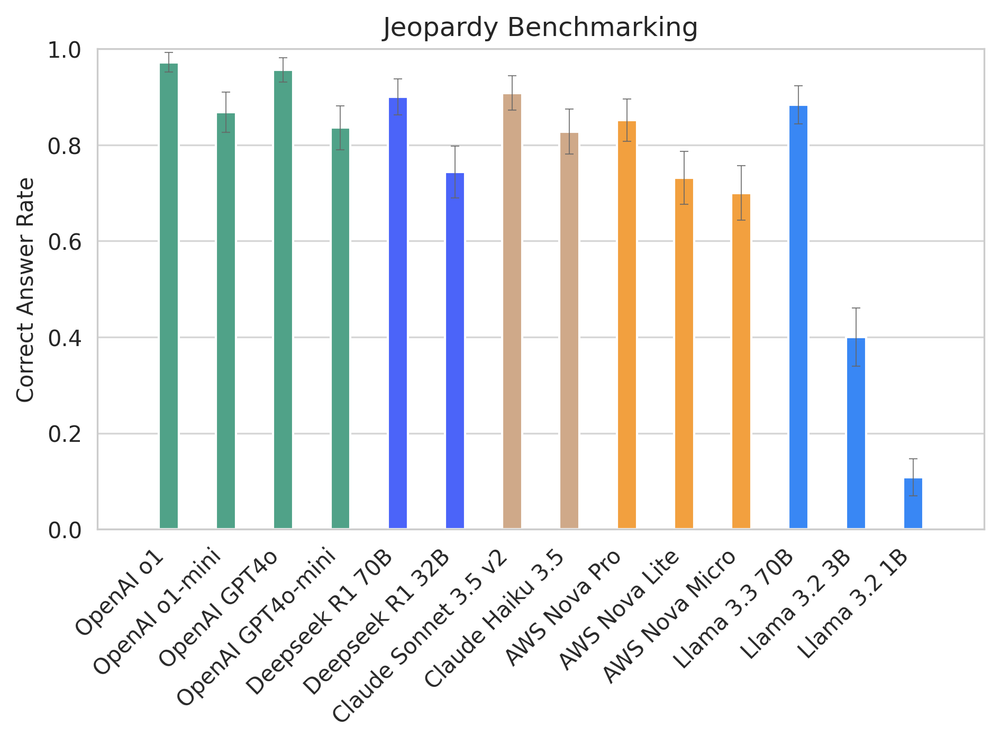I remember a time when I was at a fork in the road. I was a couple of years into a Postdoc, and having to decide what to do next. Continue the pursuit of an academic career? Or take a leap into the unknown and start a whole new chapter in industry?
Up until that point, I had no exposure to what life in industry was like. And that's probably the same situation for many PhD graduates. We've gone through the education system, then academic research. That's about 20 years shielded away from the "real world." No wonder finding an industry job can feel so daunting.
But it is possible. Many PhD graduates have gone on to find success and happiness in industry. There are lots of opportunities out there for motivated, capable individuals. So as I reflect on my own transition, here are some tips that I've picked up along the way.
1. Give Yourself Time
Making a career pivot this big is not easy. Some people enter the job market and come away fruitful in a month, while others might take several months or even a year. Having met both types of people, I want to first assure you: the time you spend looking for a job does not reflect your capability, or your eventual contribution in your role when you are hired.
The industry job search process is a lot about learning to present yourself. Your experience, your skills, and particularly, expressing your passion and (justifiable) confidence. This is not something we are trained to do in academia. As research scientists, we learn to be extremely cautious about gathering evidence and drawing conclusions. We talk about methodology and data, not about ourselves. So it's going to take some time to adjust the mindset.
In addition, navigating into a new domain (i.e., the industry world) will always require learning the ropes and the language. So it's very important, and healthy, to set the time expectation. If you find a job quickly, that's great! But you shouldn't feel deflated after a few months. View your transition as a marathon with continuous learning and adjustment, not a sprint.
This also means you should be thinking about job search as early as possible. If you can put a few hours aside each week to work on job search, and it doesn't interfere with, say, finishing your degree, then starting early is a good idea.
2. Only Do a Postdoc for the Right Reason
Many people pursue a PhD out of "academic inertia" - we get so used to being in school that we simply continue. This pattern can extend to postdocs, potentially leading you too deep into a career path that doesn't truly align with your interests.
While PhD experience and skills are relevant and valuable in industry settings, pursuing a postdoc should be a deliberate choice, not a default option. It's not advisable to view a postdoc as a backup plan if industry job hunting doesn't pan out immediately.
I once met a fellow PhD researcher who described himself as "born wearing a tweed jacket with elbow patches." His lifelong dream was to become a professor. This level of passion and commitment is an excellent reason to pursue academic research and a postdoc.
However, many PhD graduates I've encountered aren't exclusively research-oriented. We're driven by curiosity, the thrill of discovery, and the desire to push boundaries. These motivations can be fulfilled in various settings, not just academia.
In industry, a PhD can be an asset, often qualifying candidates for more senior or specialized roles. However, additional postdoc experiences do not typically provide a significant advantage. In fact, some recruiters and hiring managers may not even be familiar with the concept of a postdoc.
Therefore, unless you're fully committed to an academic career, a postdoc might not be the best path.
3. Translate Your PhD Research into Pitches
Ok, now that you've made the decision to find an industry job, how should you talk about your PhD experience to potential employers?
The most important thing to remember is: "Never Undersell Your PhD".
You want to present your PhD experience as an asset. You want to frame it as something unique that you can bring to the table. Don't be too evasive, humble, vague, or even self-deprecating about your research.
I've seen many job candidates with a PhD that are almost apologetic about their PhD experience: "I only did a PhD because my undergrad professor encouraged me to do so," "My research topic was very esoteric,", "My papers were too theoretical to describe," "All I did was pipetting liquids from one tube to another," and so on. That's a mistake. You don't want to erase those years of your life from your resume. You need to find a pitch that works for you.
What does it mean to find a pitch? There are a few components:
- Describe your research in plain English, almost like an ELI5 (explain like I'm 5). Yes, I know a PhD research can be very technical, and non-experts wouldn't understand. But if string theory can be turned into many popular science books, then you can find a way to talk about your research in an accessible way.
- A pitch should be short. Hence they call it an "elevator pitch". Practice writing down your research as just a couple of sentences. It's going to be very difficult in the beginning. You are going to have to forgo a lot of precious details that might represent years of hard work. But it'll be okay.
- A pitch should be adjusted to the audience, namely, the job that you are applying for. If you are applying for a data science role, then you might emphasize more on analytical skills. If you are applying for a data engineering role, then you might highlight the data processing technologies you leveraged and even pioneered.
Remember, your PhD research is a testament to your ability to tackle complex problems, persist through challenges, and contribute original knowledge to your field. Your unique PhD experience is an asset, so you should find a pitch to talk about it confidently.
4. Identify and Develop Key Skills
During your PhD, you've likely become proficient with a variety of research tools. These might include specialized hardware like microscopes, centrifuges, or spectrometers, as well as software for data analysis, visualization, and statistical modeling. While these tools may not always align perfectly with those used in industry, the skills you've developed are often more transferable than you might think.
For example, in my PhD, we used MATLAB, Mathematica, and even the lesser known Tcl/Tk. These aren't the most popular tools in today's industry, but the experience of working with them provided a solid foundation for learning new tools. The underlying principles of data manipulation, analysis, and visualization remain consistent across platforms.
When it comes to data science roles, you'll often see R, Python, and SQL mentioned in job postings. The good news is that your experience with academic tools makes it much easier to pick up these new ones. Moreover, with the abundance of online tutorials and the emergence of AI-powered learning assistants, acquiring new technical skills has become more accessible than ever. I firmly believe that with the right guidance and motivation, you can gain working knowledge of a new tool in just a day or two. Of course, true mastery takes time. But becoming familiar enough with a new tool to make some use of it is quite achievable.
The most effective way to learn a new skill is through practical application. That's why I strongly advocate for the "portfolio project" approach. Instead of passively consuming online courses, create something tangible with your newly acquired skills. This approach not only reinforces your learning, but also showcases concrete examples of your capabilities to potential employers.
5. Interviewing Takes Practice
To land a job, you'll go through rounds of interviews. Interviewing is a skill in itself. You need to be confident without being arrogant; demonstrate your skills but also show you're eager to learn; react quickly and think on your feet. In many ways, interviewing is like a performance art!
As researchers, we're not used to talking about ourselves this much. We talk about our work, our data. But self-promotion? Not really our forte. For PhD graduates moving into industry, learning to be confident in interviews can be tougher than picking up new technical skills.
The first step is to recognize interviewing as a learnable skill. The second is to put yourself in the right mindset. You can't convince someone to hire you if you don't truly believe you can contribute to the team. So start by building your own case for yourself.
For many PhD graduates, including myself, the first interview can be quite daunting. We can be too reserved, too unsure of ourselves. But with practice, you can build up your confidence and become more comfortable with the process.
There are effective ways to improve your interviewing skills. Try mock interviews with friends or mentors. Research common questions in your field and prepare solid answers. Or try this unusual but highly effective method: go through your analysis like you are hosting a cooking show!
If you're struggling to make progress on your own, don't hesitate to seek help. A job search coach can provide valuable guidance and support throughout your job search journey. If you think having a coach can benefit you, you can get in touch with a UnicornDS Job Search Coach here.
6. Talk to Those Who Have Made this Leap
When I was considering an industry job, I had a former labmate who had recently become a data scientist. His guidance was invaluable. I consulted with him for countless hours, and without his generosity, I might never have made this transition successfully.
We all seek support from our peers. With a career shift this significant, it's crucial to make an informed decision. Having someone to lean on who's been through the process can make all the difference.
This can be challenging, though. When you're deep in academia, pursuing an industry job can sometimes feel like a taboo topic. This atmosphere can stifle already limited information sharing, making the transition even more intimidating.
We want to change that. If you're a PhD graduate struggling with your transition, don't hesitate to reach out. Even if you're not looking for a formal job search coach, I'd be happy to chat and help you find a path forward. Your journey from PhD to industry doesn't have to be a solitary one!








